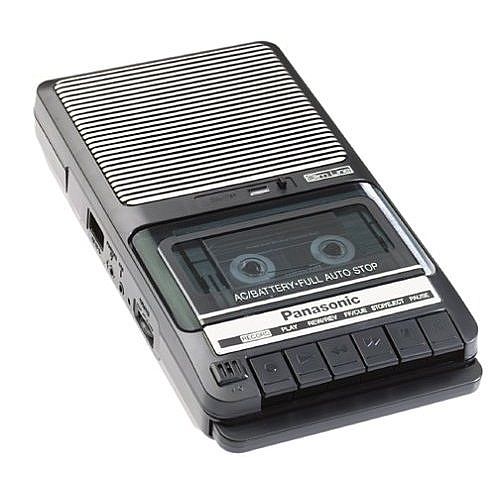But the thing that stood out to me the most in all of the readings was a brief mention by Dr. Muth that the inmates read books on tapes, and then send those books along with the recorded tapes to their children, so that their children can hear their fathers' voices reading them books, as they read along at home. Gosh, I don't know why the mental image of that struck me so profoundly, but I really wanted to know more about this! I want to hear an episode of This American Life about inmates reading books to a tape recorder, and then sending the book and the tape home to their kids, so that their kids can hear their dad's voice and read along.
I thought, you know, that's not the same as this kind of cuddling image that we conjure up about dads reading to their kids, but as a kid who grew up not living with her dad, I could see those recordings as being something that would have been hugely meaningful to me. Hearing his voice, reading along with a story, sharing an experience even across however many miles. Disconnected, distanced, but somehow also connected, briefly close.

I couldn't help thinking about the Harlem Project and Baby College. (There's a This American Life episode about the program, which is how I first heard about it.) If you don't want to read any of those links, it's basically a huge ongoing research program that promotes the idea that reading with kids, and reading to kids, is hugely, wildly important to vocabulary growth, and that vocabulary growth has a big impact on kids succeeding later in school. Some research even says that reading to infants actually has positive physical effects on their brains, by forging more neural connections.
So this week, I didn't do a great job of getting there with the readings. But maybe I connected in another way, through a brief mention of fathers reading to their kids on tape recorders.

Ha--better late than never, Caitlin! But seriously, the book taping project IS transformative, and it reaches about 10 times as many families as the summer camp can. Thank you for the links to the Harlem project. The Reading-Is-Fundamental program (no longer funded) was based on the same premise, and the research on reading to children is deep and strong. There is also an amazing program called Mother Read, that started at the Raleigh State penitentiary for Women. In this program the women, who were all in basic literacy programs, learned to read by rehearsing and then recording children's books for the kids (like Little Red Ridinghood). After they sent the books home they would discuss the story as an allegory: who was the big bad wold in their own neighborhoods, etc. This is was no laughing matter; and their stories created another layer to this family literacy project. Awesome stuff; so glad this aspect of the program resonated with you!
ReplyDeleteThank you for pointing out the part in Dr. Muth's paper about bias--I will go back to it when I write my angry tirade against the caste system in academia AKA my 1-2-3 Paper.
ReplyDeleteI hope you respond to the readings next weekly as positively as I have (so far).
Hi Catlin – I connected with this as well. Although my son and I read together, I think it would help him if we recorded a book as we read together. We will step it up and use video. It’s amazing how much we take from the literature and our discussions with each other, and apply it back to our lives.
ReplyDeleteWho cares if you couldn’t connect to the graffiti? (Sorry Dr. Muth) The connection you made with the other literature were much better.
Talk to you soon.
Shannon
One of the docents at my art museum went to Brazil last year and saw the murals. Apparently, there was a big international art festival. I looked "beyond" most of the grafitti that I saw in Philadelphia when I lived there. After reading the article two years ago, I no longer look "beyond" grafitti, but rather at it with a different lens. Sometimes being exposed to an idea is enough of a seed for future germination, yes?
ReplyDelete